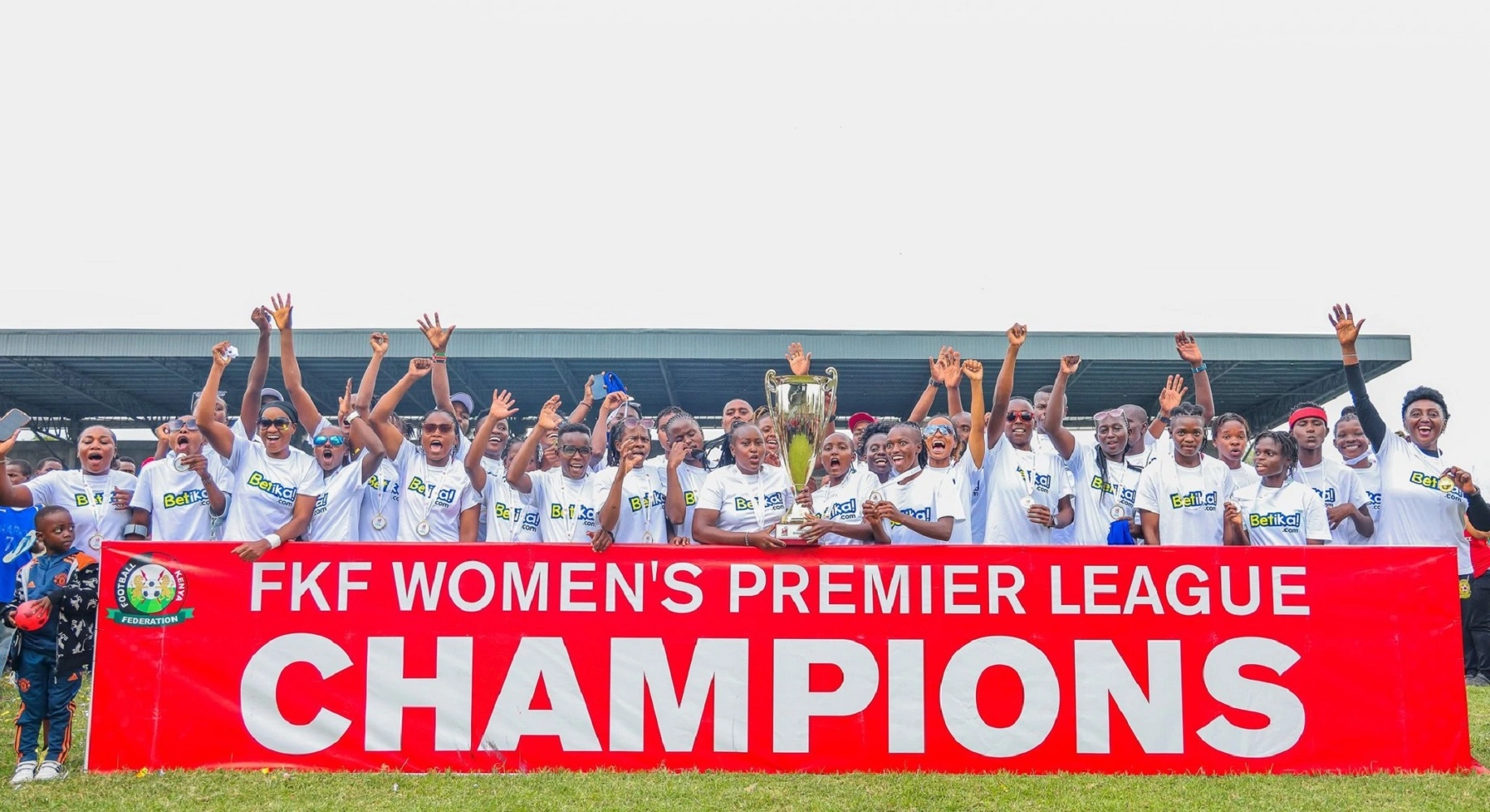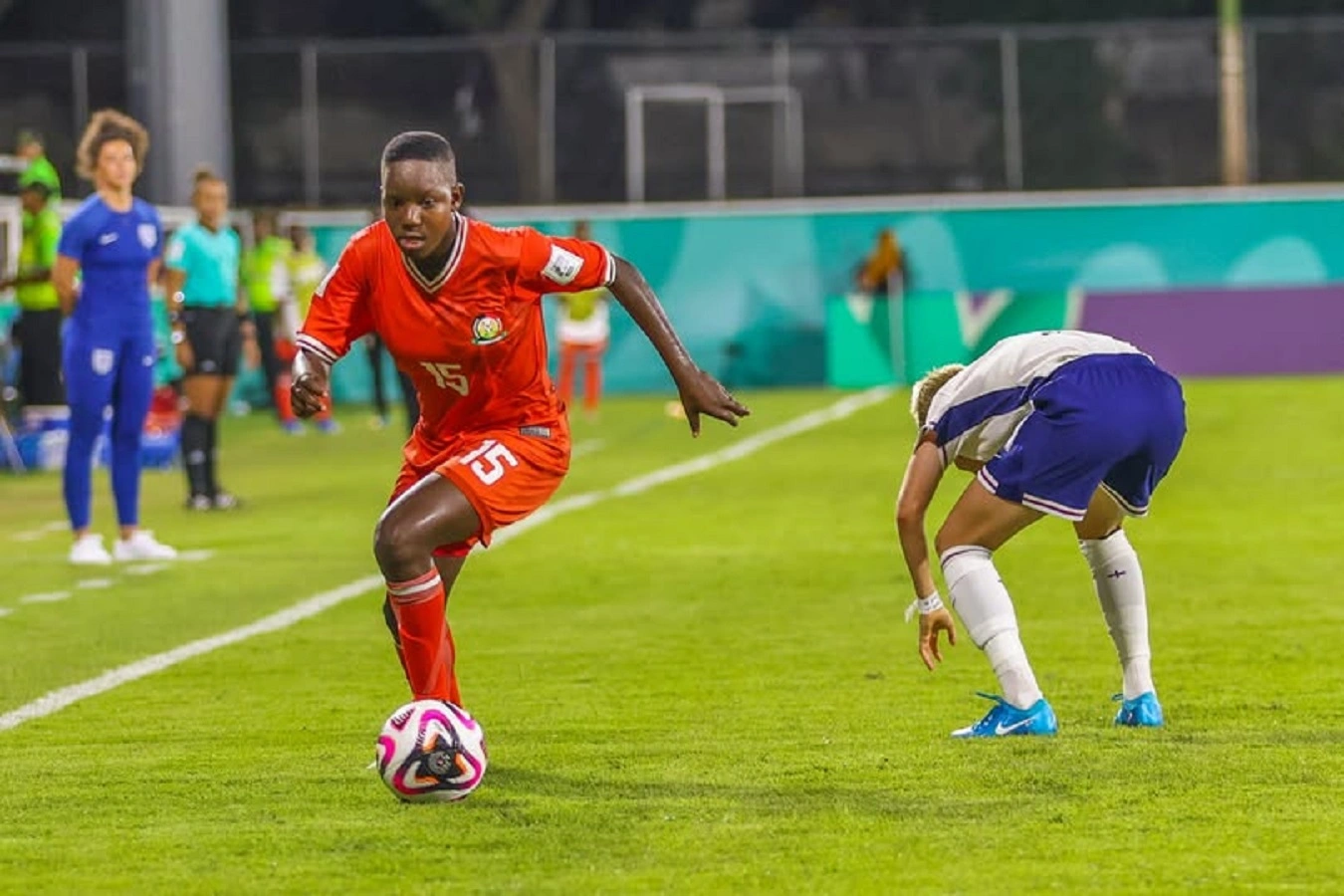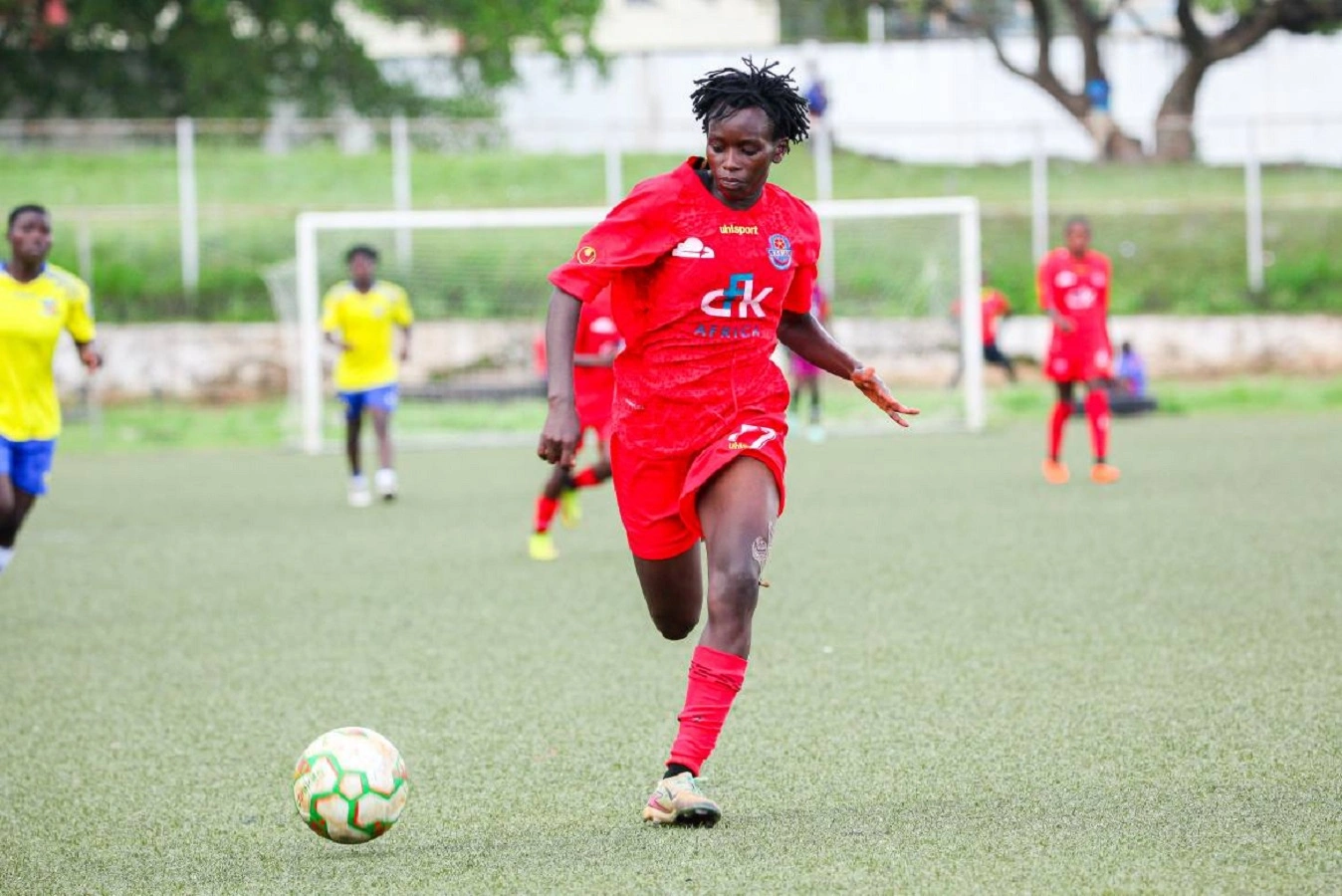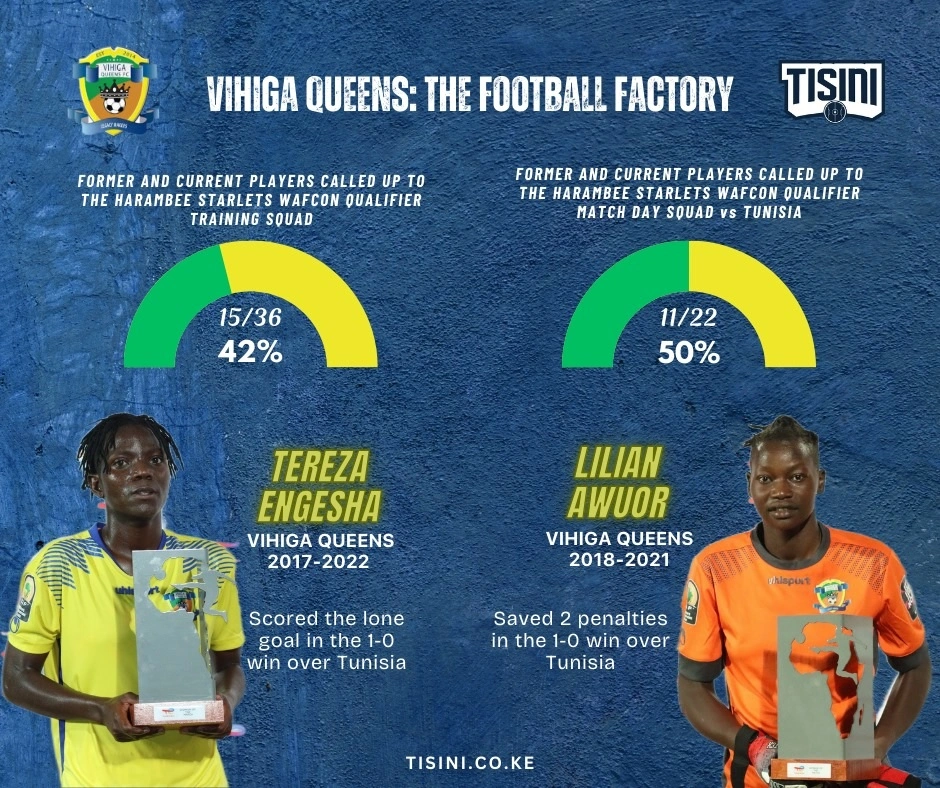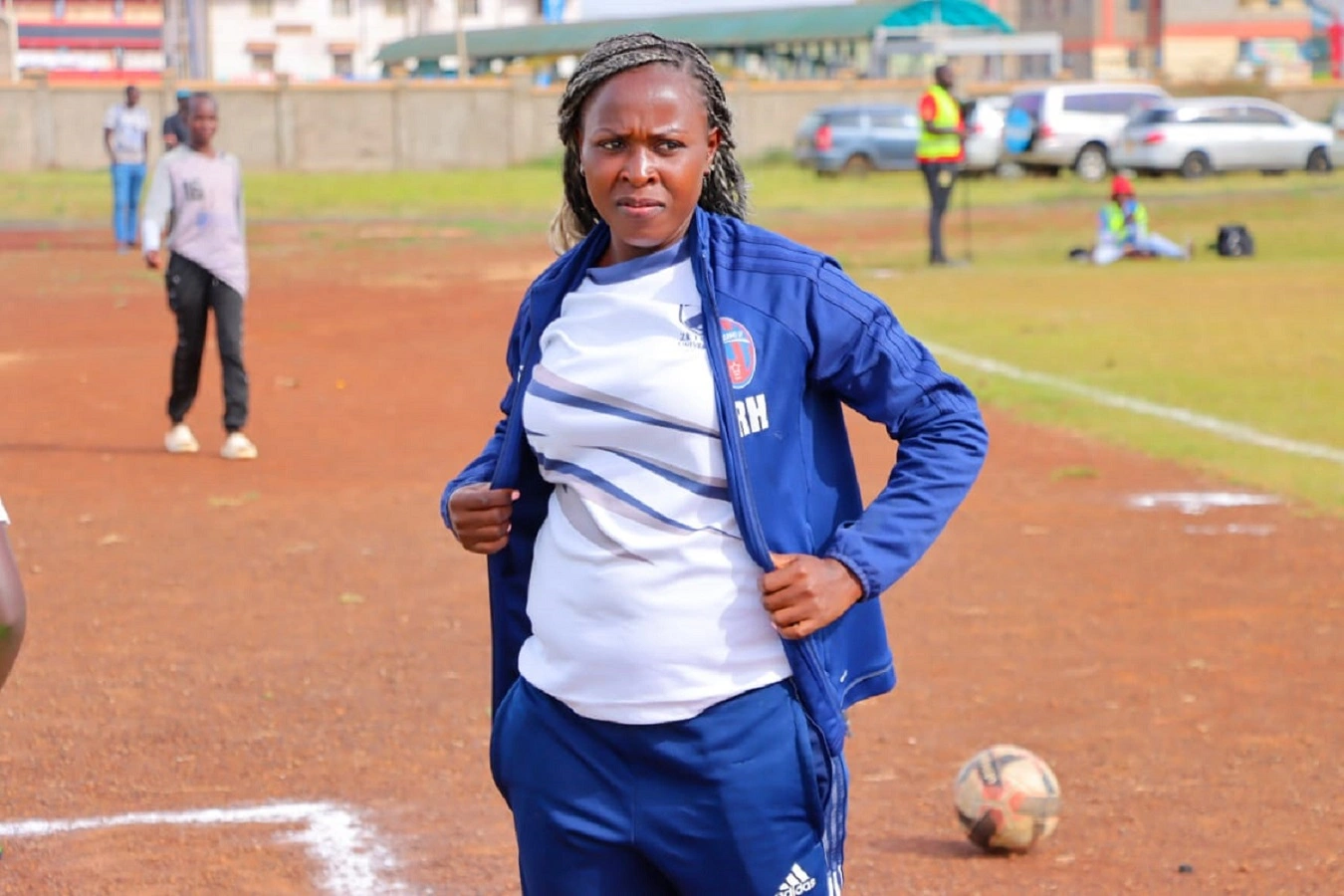
Harriet Bwire's Precision Coaching: How Data Analytics Propelled Zetech Sparks to Top-Five Finish
In just one season, Zetech Sparks went from battling relegation to staking their claim among the top clubs in the Kenya Women Premier League — a remarkable leap from 9th place with 17 points in 2023/24 to a strong 5th place finish with 30 points in 2024/25. Behind this turnaround is not just a new tactical approach but a deeper reliance on something often overlooked in local football: data.
Appointed at the beginning of the season, Head Coach Harriet Bwire credits much of her team's transformation to the use of Tisini’s data-driven insights. Replacing outgoing coach Benard Kitolo, Bwire embraced the analytics revolution — and the results speak for themselves.
“Data has been a game changer for me this season,” Bwire told Tisini in an exclusive interview. “It helps me relate what I see on the pitch with what is actually happening and, most importantly, how to improve it.”
For Bwire, the key metric that shaped her coaching philosophy this season was passing combinations between players. This data revealed whether her tactical plans were being executed effectively on the pitch.
“Seeing which players were combining well told me whether our buildup play and positional rotations were on point or needed work,” she explained.
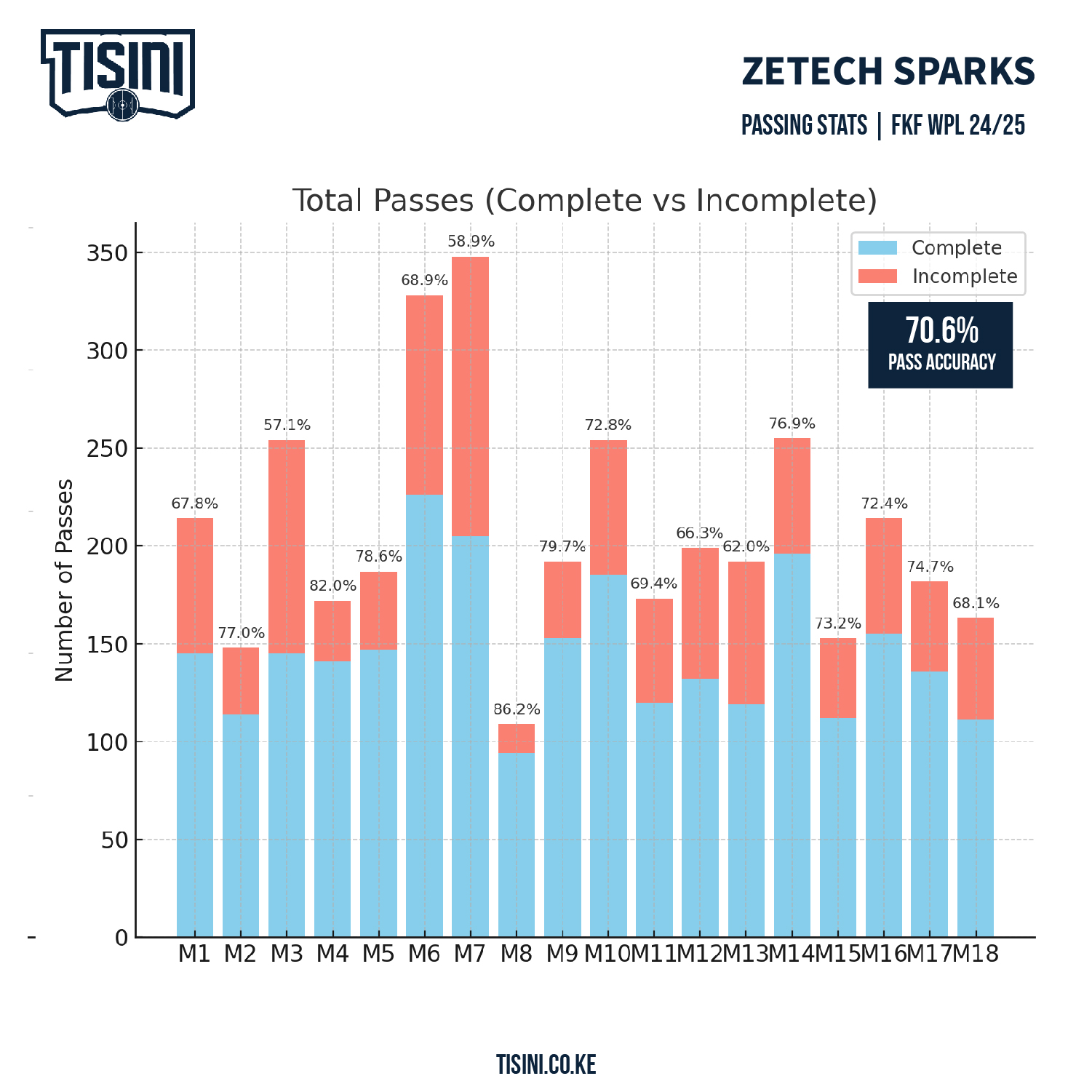
% shows pass accuracy per game. Season Pass accuracy average is 70.6%
Having worked closely with Tisini’s data agents, Bwire describes their input as an “extra eye” during matches, capturing key in-game moments she might miss in the heat of action.
“The data supports my perspective during post-match reviews and helps me correct players in a way that’s factual and objective,” she added.
One of the most critical insights Bwire gleaned from Tisini’s analytics was identifying her team's most vulnerable moments. The data revealed that Sparks frequently conceded during the last 10 minutes of the first half and final 20 minutes of the game, periods marked by a noticeable dip in quality actions, such as increased misplaced passes.
A misplaced pass immediately disrupts a team's possession and control, creating an exploitable vacuum for the opposition. This allows the receiving team to swiftly transition into a counter-attack, capitalising on the disoriented defence. This trend explains why the majority of goals conceded by Sparks (11) were transition goals.

“That was a turning point. Once I saw the trend, we focused on concentration and conditioning for those periods — and we stopped leaking late goals,” Bwire noted.
Zetech Sparks Players Learn From Data
The players themselves have embraced this data-forward approach. According to Bwire, her squad now actively seeks out their performance stats post-match, using the numbers as a benchmark for improvement.
“They ask for the data because they want to know how they did compared to previous games. It’s been very positive,” she said.
Far from being intimidated by analytics, Bwire has fully integrated data into her coaching methodology, with no setbacks, only progress.
“I haven’t faced any challenges using the data, only opportunities to improve,” she said. “Football is a science. The use of data makes it better because it’s unbiased. It helps the game grow for coaches, players, and the sport as a whole.”
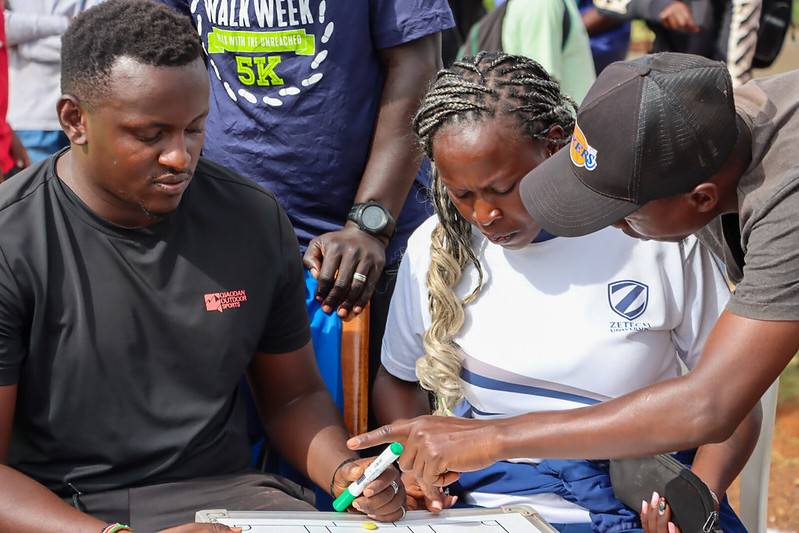
Coach Harriet and Assistant Coach Jackson Tumaini (l) in game analysis
With Zetech Sparks climbing the league table and building a culture of continuous improvement, Coach Bwire’s successful partnership with Tisini stands as a shining example of how data right here in Africa, is solving problems in Kenyan football, one pass, one pattern, and one point at a time.

